Webster University Hosts Phage Summer Camp for High School Students
July 26, 2023
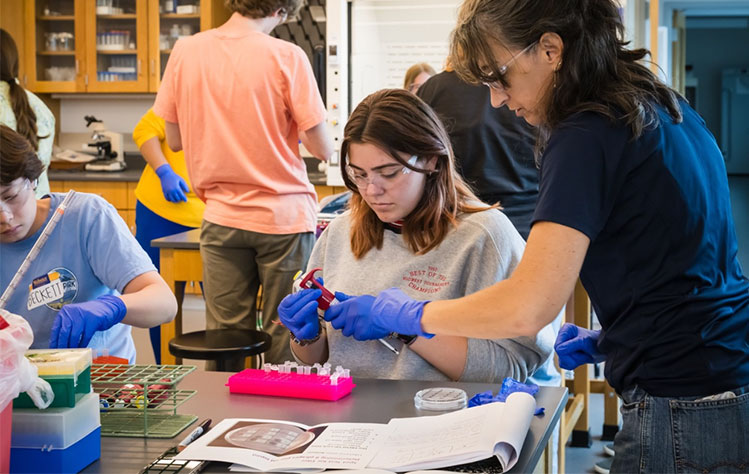
Victoria Brown-Kennerly, director of the Computational Biology program, assists a camper with a phage experiment.
In a quest to unravel the mysteries of the microbial world, a group of high school students recently came together for Webster University’s Phage Summer Camp.
The camp, organized as part of the prestigious SEA-PHAGES program through the Howard Hughes Medical Institute (HHMI), aims to cultivate the next generation of young scientists and instill a passion for understanding bacteriophages — viruses that specifically infect bacteria.
Under the guidance of professors Mary Lai Preuss and Victoria Brown-Kennerly, and undergraduate Biology students Isabelle Llewelyn and Michael Hayes, camp attendees had the chance to dive into the fascinating realm of microbiology. Participants learned essential laboratory techniques and actively participated in real scientific research — where outcomes were yet to be determined.
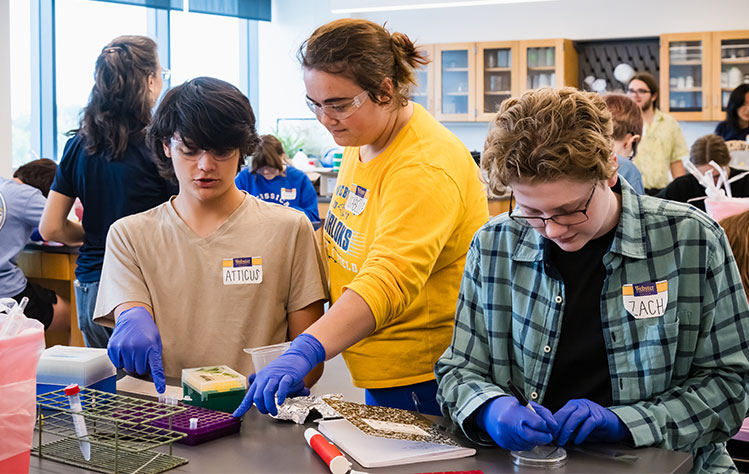
Undergraduate Biology student Isabelle Llewelyn gives advice to a camp attendee.
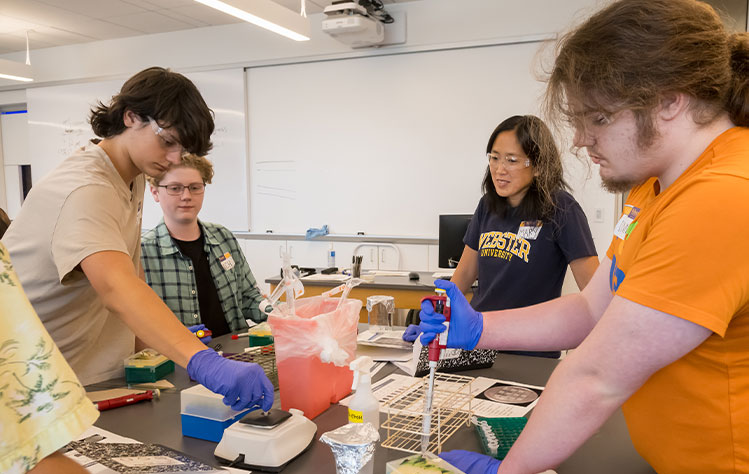
Mary Lai Preuss, department chair of Biology, supervises while campers perform an experiment.
By the end of the summer camp, attendees had successfully isolated numerous bacteriophages from environmental samples. They annotated their findings and documented unique characteristics of each phage. In collaboration with Wandy Beatty, PhD at Washington University, students were able to visualize their novel bacteriophages using transmission electron microscopy. This method magnified their samples 100,000 times, giving them the ability to see the virus particles.
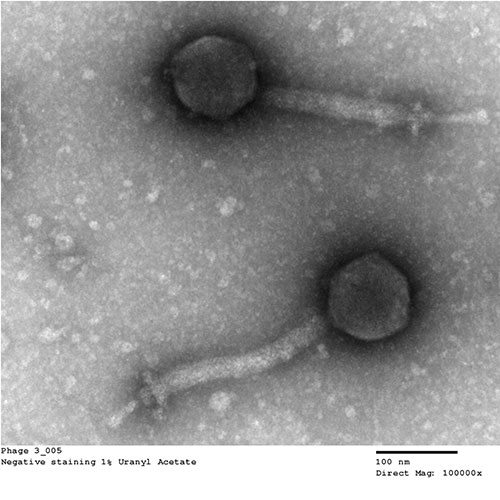
Bacteriophages under a microscope.
The SEA-PHAGES program has been making significant strides in microbial research for years. The program aims to foster a community of student researchers who contribute to the vast database of bacteriophages, enriching our understanding of these tiny yet influential agents. Webster University Biology professors have been members of the SEA-PHAGES program since 2016.
Learn more about Webster University summer camps.
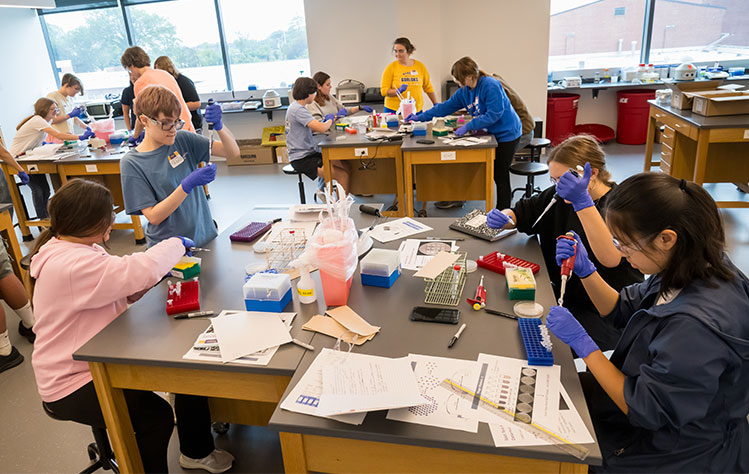
Phage Summer Camp attendees work to isolate bacteriophages from environmental samples.
